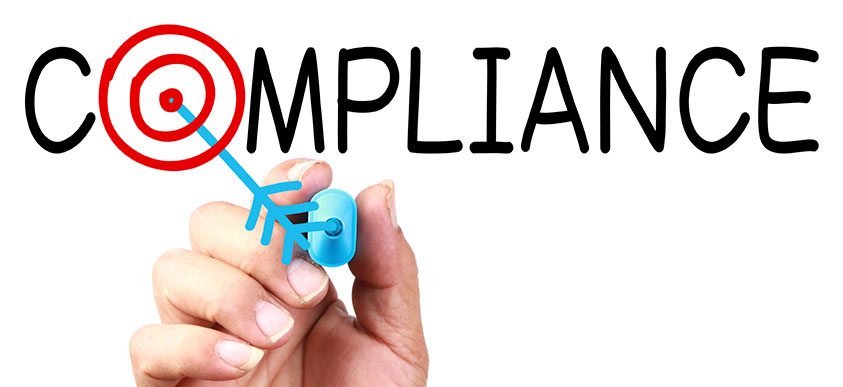Tips to understanding and adhering to international regulations
Meetings and events serve as powerful tools and enablers for companies to achieve business goals. At the same time, regulatory compliance remains top of mind for global businesses, as government regulators place a heightened focus on transparency, accountability and conduct. For many organizations, meetings and events constitute one area in which there are potential risks, and liabilities and penalties can create significant exposure.
Companies and their employees who fail to adhere to global compliance regulations can face serious consequences. Within meetings and events, non-compliance is often tied to:
–Meeting payments, expenses and records
–Handling of personal information
–Attendee selection and transfer of value
By strategically establishing internal controls and developing a thorough understanding and review of regulatory compliance requirements, companies can position themselves to mitigate these risks.
Vet, Track & Document Payments
The first step in mitigating compliance risks lies in properly vetting outside parties, including vendors, subcontractors, agents, suppliers, companies or employees you intend to conduct business with. In doing so, companies can be sure their vendors align with their business objectives and share a similar desire to uphold proper ethical and compliant business practices. Companies should make sure they can trust the partners they select, have clarity about the services they provide and ensure specific controls are in place to avoid improper payment risks.
Visibility into payments is critically important throughout the meetings life cycle, starting with budget creation and approval, and extending to sourcing and negotiations with suppliers. Proper documentation should extend to onsite management, execution of an event and reconciliation and payment process. By demonstrating controls within each step, companies can prevent expense fraud, demonstrate diligence in procurement of services and avoid risks associated with inaccuracies.
Collect, Disclose & Assess Personal Information
Anti-corruption compliance risk is one of the many compliance issues multinational companies face when planning a meeting or event. With the help of technological advances such as attendee management solutions, mobile apps and beacon technology, companies can easily gather and collect real-time data, which helps to automate attendance tracking and promote compliance. However, significant risks may still exist if these controls fail to protect aggregated personal information. Companies must make sure to safeguard this data and collect only information that is purposeful and required.
When planning an event, meeting professionals must remember to consider the implications associated with collecting personal information and ensure their processes are within compliance parameters. To begin, companies should:
–Assure attendee consents are in place for data being collected.
–Disclose how personal information will be gathered, used and stored.
–Assess technology partners and products that will be receiving and storing data to ensure all partners and solutions comply with regulatory requirements.
Screen, Leverage & Verify Attendee Selection
Companies must be conscious of current geopolitical environments when planning meetings and events in regions where global sanctions, international trade controls and other regulations can impact the allotted number of attendees at an event. Existing sanctions and international trade controls should be reviewed prior to a meeting or event to ensure an attendee’s citizenship does not interfere with his or her ability to attend.
Prescreening attendee lists can help companies avoid issues associated with attendee citizenship, although initial screens are not always sufficient. Leveraging technology can enable companies to ask additional qualifying questions that may not have been identified in initial screenings. During the registration process, attendees should personally verify their eligibility to attend an event.
Today’s heightened regulatory environment poses unique challenges in emerging countries where there is a greater need for in-person training and conferences. Companies planning events in these regions should use their global reach and experience with local suppliers to navigate logistical issues and avoid potential risks.
Organizations have already started to implement controls by having onsite personnel in attendance at their meetings and events. For specific industries or when working with government bodies, clear documentation of value and services provided to each attendee is critical from a compliance and risk-management perspective.
A comprehensive program should balance onsite diligence with end-to-end data reporting throughout the meeting cycle. By taking these measures, companies can ensure attendance and expenses are accurately documented. One way of ensuring this process is by anticipating these issues prior to an event and requiring that meeting management companies offer accurate expense tracking, post-event reporting and audit services.
Develop a Global Strategy
Looking ahead, meetings will continue to provide unique opportunities for companies to gather their key stakeholders in order to achieve business goals. While meetings and events offer numerous benefits, it is important to remember that monetary penalties and potential civil or criminal liabilities can arise from failure to follow proper regulatory procedures.
Therefore, internal controls should become customary throughout all areas of operations, and companies should be mindful of tracking meetings payments, protecting personal information and reviewing attendee lists in advance to help mitigate potential risk.
Issa Jouaneh is senior vice president and general manager for American Express Meetings & Events, the world’s largest meetings and events company, with 1,200 meeting professionals in 40 countries. It provides meetings and events strategies such as group air, site selection, logistics, and mobile and hybrid solutions.




